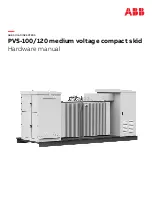
SECTION 2 |
General Information
9
be > 0 <1. Normally it ranges from 0.5 to 0.8 e.g. (i) AC motors (0.4 to 0.8),
(ii) Transformers (0.8) (iii) AC to DC Switch Mode Power Supplies (0.5 to 0.6) etc.
Load: Electrical appliance or device to which an electrical voltage is fed.
Linear Load: A load that draws sinusoidal current when a sinusoidal voltage is fed
to it. Examples are, incandescent lamp, heater, electric motor, etc.
Non-Linear Load: A load that does not draw a sinusoidal current when a sinusoidal
voltage is fed to it. For example, non-power factor corrected Switched Mode Power
Supplies (SMPS) used in computers, audio video equipment, battery chargers, etc.
Resistive Load: A device or appliance that consists of pure resistance (like filament
lamps, cook tops, toaster, coffee maker etc.) and draws only Active Power (Watts)
from the inverter. The inverter can be sized based on the Active Power rating (Watts)
of resistive type of loads without creating overload (except for resistive type of
loads with Tungsten based heating element like in Incandescent Light Bulbs, Quartz
Halogen Lights and Quartz Halogen Infrared Heaters. These require higher starting
surge power due to lower resistance value when the heating element is cold).
Reactive Load: A device or appliance that consists of a combination of resistive,
inductive and capacitive elements (like motor driven tools, refrigeration compressors,
microwaves, computers, audio / video etc.). The Power factor of this type of load is
<1 e.g. AC motors (PF = 0.4 to 0.8), Transformers (PF = 0.8), AC to DC Switch Mode
Power Supplies (PF= 0.5 to 0.6) etc. These devices require Apparent Power (VA) from
the AC power source. The Apparent Power is a vectorial sum of Active Power (Watts)
and Reactive Power (VAR). The AC power source has to be sized based on the higher
Apparent Power (VA) and also based on the Starting Surge Power.










































